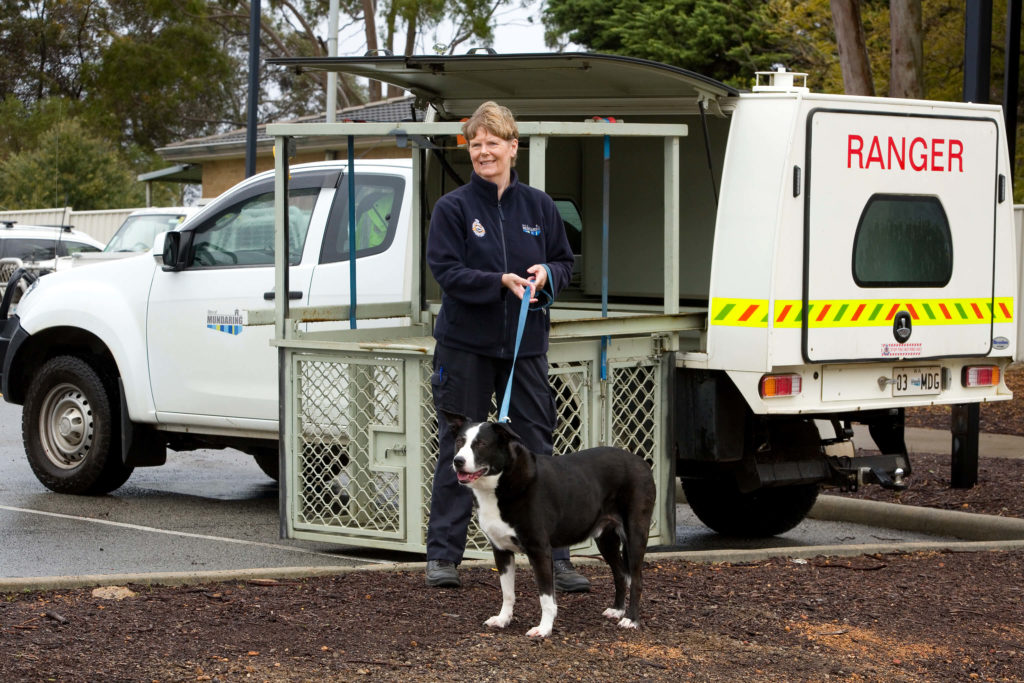Where we’ve been
The 2021 LGIS Local Government Golf Tournament, the Broome Board Tour, and the Kimberley Zone and WALGA Dinner

Each liability risk exposure is unique to the circumstances, and your ability to respond may be impacted by your budget, resourcing, and other priorities. Here at LGIS, our extensive liability claims and risk management experience can provide support, no matter your circumstances. We aim to protect and inform your decision making by assisting you to anticipate, identify, understand and manage your liability risk exposures.
The 2021 LGIS Local Government Golf Tournament, the Broome Board Tour, and the Kimberley Zone and WALGA Dinner
A substantial amount of a local government’s resources are
connected to its motor fleet. If the fleet has downtime, it can have significant impact on the local government’s diverse range of operations.
The scenario: The worker, Fred Dagg, has worked at the Shire of Westralia as a Plant Operator for 35 years. Fred was an accomplished footballer and cricket player having represented the town at many sporting competitions over the years.
Your LGIS Scheme membership provides protection against the risk of civil liability exposures, which may result in claims or litigation made against you. Your Scheme protection has been tailored to meet the complex nature of local government and your associated exposures.
The LGIS Liability protection covers two main categories – public liability claims and professional indemnity claims. There is an important distinction between them and the protection available under your LGIS Liability membership.
A public liability may occur where your local government owes a person a duty of care and this duty is breached causing injury or loss. This duty of care can arise independently of statutes or other written laws and is part of what is generally referred to as ‘common law’.
The principle of common law places the onus (or responsibility) of proving negligence on the person/entity who has allegedly suffered the loss. There are four key elements of negligence. These are duty of care, breach, causation and damages. If the claimant successfully proves the first three elements, then the final part of a negligence claim involves damages.
A good way to remember the difference between the two is that public liability claims arise out of an accident that results in someone’s property being damaged or someone being hurt. Professional indemnity claims arise when someone suffers a loss (which can be purely a financial loss) as a result of the member performing a professional service as part of its business, such as planning advice.
Public liability – protection for legal liability you may
incur to others such as members of the public and
businesses for personal injury or damage to property.
Professional indemnity – protection for legal liability
that may arise out of a breach of professional duty,
for example providing incorrect planning information.
The protection trigger for a public liability claim is a demand for compensation alleging or implying any breach of duty of care, arising from an “occurrence” that results in either personal injury or property damage in connection with the business. (Note: ‘business’ has a broad interpretation so that all local governments’ activities are considered). “Occurrence” is a defined term and conventionally means an event that is neither expected nor intended from the standpoint of the local government.
A professional indemnity claim is more complicated:
A claim (a demand for compensation alleging or implying any breach of duty of care) by a third party against the local government.
You must notify LGIS during the same period of protection (as when the original claim against the member was made).
The claim must arise out of any civil liability (which has a very wide meaning and is not confined to a demand for, or an assertion of a right to, civil compensation or civil damages).
In the conduct of the member’s professional duties (‘professional’ in this context is very broad today, it is not limited to ‘learned’ professions).
Undertaken in the business (as per above).
A successful argument or defence against a person alleging negligence on the part of the local government requires you to demonstrate that all reasonable care has been taken to manage or mitigate the risk. It is not a requirement for you to prevent all possible mishaps, accidents or incidents that cause loss to others, what is required is that all reasonable care is taken to avoid such occurrences.
Importantly, when assessing whether the local government has taken all reasonable precautions, this is not done with the knowledge of hindsight, meaning it does not involve looking at what has occurred and then determining what the local government could have done to prevent it. It means looking at what the local government did do at a point in time before what has occurred and assessing whether that was reasonable.
What do these terms mean?
Negligence: failure to take proper care over something
Duty of care: a legal obligation to ensure the safety or wellbeing of others
Occurence: an event that is neither expected nor intended

There are a number of pieces of legislation that control how our State is developed. These include Acts that control how approvals for subdivision and development are to be given, and how planning schemes are to be made. Other legislation controls how buildings are to be constructed; imposes particular specifications regarding the method of construction; and affects which development and activities can be undertaken on certain land – e.g. environmental protection and heritage legislation.
The Planning and Development Act 2005 (PD Act) is the primary piece of legislation governing development and subdivision in Western Australia.
Local governments carry out the majority of day-to-day planning controls relating to development in Western Australia by the PD Act. Pursuant to the PD Act, local governments are given power to make local planning schemes.
Through the making of a local planning scheme dealing with the matters set out in Schedule 7 of the PD Act, your local governments’ statutory responsibilities include:
the preparation of a local planning strategy (a document which informs the making of a local planning scheme)
the preparation of a local planning scheme for approval by the Minister for Planning upon recommendation of the WA Planning Commission (WAPC)
administering development control pursuant to your local planning scheme
the preparation of planning policy to augment and support your role as decision-maker under your local planning scheme
providing advice to the WAPC in relation to subdivision applications within your local government area
providing advice and comments generally to the WAPC on planning issues within your local government area or district generally
Approval of building plans contrary to development agreements
An approval has been given for building application for commercial use units. Despite this, the local government becomes aware that the property is being used for residential purposes. With the knowledge that the units were being used for residential purposes, the local government has a duty to take action to identify to the owners that they need to seek planning approval for that type of use. The local government could be found liable to cover the expense of improving the property to meet residential standards.
Building applications granted under the condition that specified materials be used
The local government requires the property be constructed with non-flammable cladding, and the Building Code of Australia requires the use of non-flammable cladding at the property.
The builder had specified the use of non-flammable cladding, however the property was constructed with flammable cladding, and therefore was inconsistent with the building permit and the Building Code.
If the local government had no knowledge of the wrongful substitution of flammable cladding, it therefore plays no role in the property being the subject of an adverse audit. However if the local government had knowledge, you are required to issues notices for the breach of building code to be rectified.
Statements of property enquiries
Under common law, your local government has an obligation to provide reasonably accurate information or advice to an enquiring individual (e.g. potential purchasers or settlement agents) to limit pure economic loss.
Local governments will be found to owe claimants a duty of care to provide accurate information relating to the zoning of the property and the allowed use.
Information requested may include specialist information in relation to rate information; outstanding health and building orders; building licenses issued, zonings; and proposed changes to zonings.
This is information that would only be in the possession of the local government and therefore is “specialist” information that claimants would be entitled to assume is within the local government’s knowledge. Information relating to the zoning of property is of particular importance to claimants and is therefore a serious matter.
In the instance an enquiry from a claimant clearly identifies planned usage of a property after purchase (and it is obvious the claimants intend to rely on the local government’s response), if the property is zoned contrary to what is advised, the local government could be found liable for any economic loss associated with the misrepresentation.
When leasing (hiring) local government-owned premises, your local government owes a duty of care to keep the premises reasonably safe for ordinary use, to prevent patrons from suffering injury from any danger present at the premises.
However, ordinary use implies that patrons will keep a lookout for their own safety. Members do not owe a duty of care in relation to obvious risks that can be avoided by persons taking care for their own safety.
There is an additional risk if alcohol is served on premises controlled by the local government, as then you (the local government) will have regulatory and lawful responsibilities. Those responsibilities are tempered by the requirement for individual responsibility, and the fact that one cannot guarantee proper behaviour by the intoxicated. That said, if you are in control of a property and you allow invitees to attend and consume alcohol, you cannot evade all responsibility by asserting that those who attend are adults, who are responsible for the outcome of their own behaviours. A strategy formulated upon the importance of individual responsibility amounts to hoping for the best from a liability perspective.
Fall on premise
A member was successfully defended against a claim where a third party had fallen down a limestone step whilst attending an event at a pavilion owned by the member but leased to a another party. The limestone step was obvious and, therefore, the member was under no duty to install a balustrade or railing at the edge to stop people falling.
Preventable risk
A member’s claim was recently settled, where its Town Hall had been hired to another party. The Hall has a raised stage with a trap door, level with the floor, which had been used to store a piano. The trap door could be raised through two small holes cut into the floor (for hand holds). During the set up for the event, the holes were covered with duct tape, and a security guard sat down on a chair with legs that had been placed over the duct tape. The chair leg fell into the hole and the security guard suffered serious back injuries as a result. The member was likely to be found contributory negligent for the accident as the holes in the floor posed a risk to users of the Hall and the cost to alleviate this risk was low (if the member simply put a latch over the hole).
Inebriated injury
A member was successfully defended against a claim from an injured patron attending an event at a café owned by the member but operated by another party. The injured patron fell from a table (dancing whilst drunk) over a balcony onto sand several metres below and suffered severe spinal injuries. The claimant alleged the member was negligent as the owner of the premises as it commissioned the construction of the café – which included negligently having the tables too close to the balcony edge. LGIS denied these allegations and successfully settled the claim without payment of any compensation.
It’s not uncommon for a local government to engage a labour hire company to provide workers for projects or events. If those labour hire workers are injured whilst engaged by your local government, the labour hire company has a right to recover any compensation it has paid (or more properly, that its workers’ compensation insurer has paid) from your local government if it establishes negligence caused the injury.
Therefore, the local government’s liability to the labour hire company is conditional upon the local government’s negligence causing the labour hire employee’s injury – it does not need to be proven that the local government is liable for the injury, only that its negligence caused the injury.
LGIS recently settled a claim by a severely injured labour hire employee who had been injured whilst being ‘employed’ by a local government member.
The member had ‘employed’ the labour hire employee to undertake a limited role, but had actually asked them to assist with an entirely different role for which they had no experience. The member didn’t provide training or any safety equipment. Accordingly, the member was likely to have caused the injury to the labour hire employee through its neglect.
Had the local government provided adequate training and supervision, along with appropriate safety equipment, the outcome may have been different. The local government should have confirmed the labour hire agreement required a principle indemnity extension (statute and common law) for workers’ compensation.

As we’ve discussed, members of the Scheme are protected by LGIS Liability against claims for personal injury or property damage for which the member is legally liable. Essentially the policy responds if the member is liable for the alleged incident, put another way if the member is liable the policy responds from a defence perspective.
It’s important to note that a public liability policy is not the same as your normal household insurance in which you are only required to prove damage – in the case of liability the claimant needs to prove negligence or a failure of duty of care.
Common claims seen against our members include footpath claims (personal injury), tree branch or tree root claims (property damage), or road damage claims (property damage). In determining our members’ liability for claims of this nature, the essential element in establishing negligence is whether the member had prior knowledge of the issue and the action taken (or not taken) after notification of the issue.
Tree claims (A large storm hits the Perth area and a local government’s tree branch fails in the heavy winds – hitting a member of the public’s house)
Tree claims brought against local governments usually relate to tree roots or tree branches failing in storms causing damage to private property.
Just because a tree is an asset of the local government, it doesn’t mean the member is automatically liable for damage the asset causes.
When a branch fails, it rarely means that the failure is due to a lack of maintenance or that the failure was reasonably foreseeable.
The natural activity of trees is to shed or drop limbs and generally no amount of maintenance or pruning can reduce the risk of trees randomly failing, or due to storm damage (which is the main cause of most tree branch claims).
This means that unless the member was aware of the specific risk of a branch or tree failing, then they are not negligent and therefore we would decline the claim on behalf of the member.
Footpath claims (Mary is walking along the footpath at the local park and trips on a raised section of pavement, causing injury and damaging her glasses)
Australian courts have established that local governments are not expected to keep footpaths in a state of perfection.
The risk footpaths pose is considered not unusual in outdoor environments (therefore it is reasonable to expect that footpaths are not free from imperfections, they are uneven and raised). Local governments do not have a duty to alleviate every risk of injury presented by defects because they do not pose a risk to ordinary pedestrians taking care for their own safety.
Members need to be aware of the specific risk or hazard of a particular area of the footpath and failure to take reasonable action to remedy the issue could arguably be seen to be negligent.
Based on the above, generally claims of this nature are declined on behalf of the member.
Road claims (A member. of the public is driving along the road and damages their vehicle when they hit a pothole)
Road claims usually relate to members of the public damaging their vehicles after hitting potholes.
Potholes form in wet weather from puddles on the road and constant vehicle impacts causing the road base to slowly erode and break down. This is a common claim from the extremely wet winter Perth has recently experienced.
Generally speaking due to the nature of potholes, local governments are normally not aware of their existence so rely heavily on members of the public to report potholes and defects on the road network they are vested to maintain.
Pursuant to section 5Z of the Civil Liability Act 2002 (WA) (Act), local governments are a road authority for the purposes of the Act, and are protected from paying compensation for failing to repair a road defect unless they had actual knowledge of the defect at the time of the accident.
Based on the above, members are not usually liable for pothole claims, unless already aware of the pothole and failing to.
If you have any queries about liability claims, please reach out to your local LGIS general claims team on 9483 8854 or [email protected]

As a local government delivering services to your community, any interactions you have with third parties – directly or indirectly – introduces liability risk exposures.

The Containers for Change initiative incentivises community members to recycle. It encourages the community to collect eligible containers, take them to a collection point, and earn a refund of 10 cents for every container.

Manual tasks are performed by all workers within local government, and are classed as physical work activities that can be defined as any activity requiring a person to use their musculoskeletal system.
LGIS is the unifying name for the dedicated suite of risk financing and management services for WA local governments, established by the WA Local Government Association in conjunction with JLT Public Sector (part of the Marsh group of companies). LGIS is managed by JLT Public Sector (ABN 69 009 098 864 AFS Licence 226827).
Risk Matters, via this website, is designed to keep members, their staff and elected members informed on topical risk management and insurance issues and LGIS programs and services.